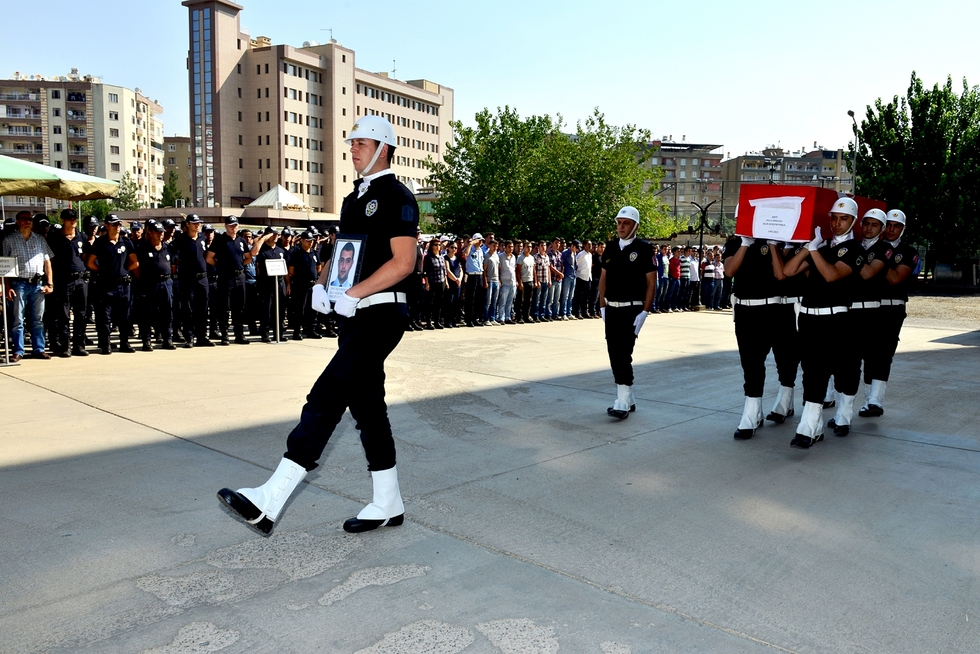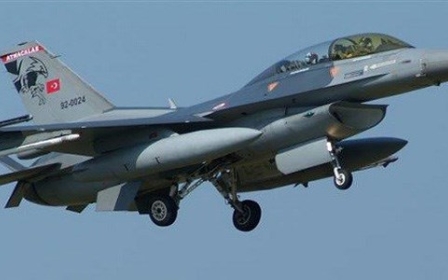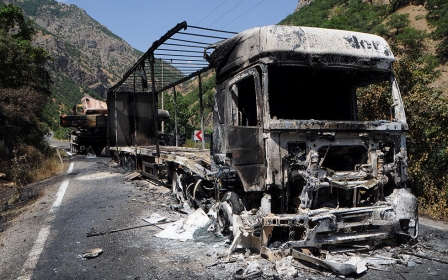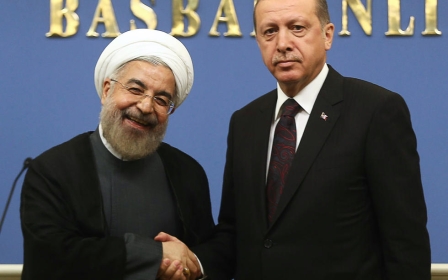Report claims Turkey gave US only 10 minutes warning before strikes on PKK

US military figures were reportedly “outraged” in late July by Turkey’s decision to bomb the Kurdistan Workers Party (PKK) in northern Iraq without warning its NATO ally, according to US media reports.
An anonymous military source told Fox News that Turkish military officials had only given 10 minutes warning of the decision to bomb the PKK.
"A Turkish officer came into the CAOC (Air and Space Operations Centre), and announced that the strike would begin in 10 minutes and he needed all allied jets flying above Iraq to move south of Mosul immediately,” said the source, describing the events that transpired at a centre in a secret location in the Middle East.
"We were outraged," the source said.
Turkey launched its airstrikes against the Kurdish militant groups on 24 July at the same time as it began strikes against the Islamic State (IS) group in Syria aqnd Iraq.
While the latter had the full support of the US - and marked Turkey’s first active involvement against IS - the attacks on the PKK were more controversial as the Kurdish militants (and the ideologically linked YPG in Syria) had been one of the effective groups fighting IS in Iraq and Syria.
The US military source also claimed that it wasn't the short notice alone that was problematic: the Turkish bombings risked harming US forces in northern Iraq.
“We had US Special Forces not far from where the Turks were bombing, training Kurdish Peshmerga fighters," the source said. "We had no idea who the Turkish fighters were, their call signs, what frequencies they were using, their altitude or what they were squawking [to identify the jets on radar].”
Strained relations
Though the US and Turkey have been staunch allies since the middle of the 20th century and the latter has been a long-term member of NATO, recent developments in the Middle East have strained relations between the two countries.
Though both countries initially supported the overthrow of Syrian President Bashar al-Assad, Turkey has recently cut an independent path in tandem with Qatar and Saudi Arabia, as the US has grown uncomfortable about al-Qaeda linked elements in the Syrian opposition.
In addition, the People’s Protection Units (YPG), the militia of the Democratic Union Party (PYD) which is linked to the PKK, has been seen as one of the most effective and reliable forces fighting IS in Syria.
“There are age-old Turkish concerns that the Kurdish movement will seek to advance an independent state by creating contiguous, Kurdish-dominated territory from north-east Iran, across the north of Iraq and Syria to the Mediterranean,” wrote Nigar Göksel, senior Turkey analyst for the International Crisis Group.
“These concerns are further fuelled by empowerment of the PKK-linked militia – the People’s Protection Units (YPG) – that dominates Kurdish areas of northern Syria. Cooperating closely with the US, it has been gaining ground against IS and drawing recruits from among Kurdish militants in Turkey, while building ties and legitimacy in Western capitals.”
Fundamental contradictions
Though the US has publicly supported Turkey’s campaign against the PKK, some commentators have questioned the sincerity of the US backing of the bombings.
“The US-Turkish agreement over Syria over combating IS is riven with uncertainties, conflicting objectives and disagreement,” said Fadi Hakura, associate fellow at Chatham House.
“Turkey’s primary objective is preventing an autonomous Kurdish entity emerging in northern Syria and secondly regime change in Damascus. For the US, the key objective is to degrade and destroy IS in Syria and Iraq. This conflict-ridden relationship has been papered over, but not decisively dealt with.”
He told Middle East Eye that there were fundamental and practical contradictions between the US and Turkey over the PKK.
“The US does not have many options on the ground when it comes to fighting IS. Whether its the PKK or Iraqi Kurdish Peshmerga fighters, the Kurds are one of the few allies they have on the ground,” Hakura said.
“The US is closely coordinating with the YPG in northern Syria from a command centre in northern Iraq. So there is close coordination between them and the last thing the US wants is a flare up or conflagration between Turkey and the PKK.”
Role of Turkish military
Galip Dalay, a research fellow at the Al-Sharq Forum, said that one possible cause of a breakdown in communications could have stemmed from the weakened power of the Turkish military in recent years.
One of the main successes of former prime minister (now President) Recep Tayyip Erdogan while in government had been to undercut Turkey's military apparatus, arresting scores following accusations of coup plots.
"In the 1990s, even up to the early 2000s, the military was the US primary partner in Turkey, so therefore in major strategic decisions the US was would first engage the military before engaging with civilian politics," Dalay told MEE.
"However, in Turkey the military in the last several years has been submissive to the government, so I think the US now realises that on all big decisions it has to work with the government."
Dalay said, however, that he did not believe that relations between the US and Turkey would be fundamentally harmed by the anti-PKK campaign.
"It can harm relations, but I don’t think that it will cause a major problem between Turkey and the US," he said. "But it can definitely cause some headaches, especially if these operations somehow have some ripples across the Kurdish region in Syria."
"I don’t think Turkey will go into a fully-fledged war with the PKK and even then it will try - despite its discourse of putting the YPG and PKK in the same basket - to make distinctions between the two."
New MEE newsletter: Jerusalem Dispatch
Sign up to get the latest insights and analysis on Israel-Palestine, alongside Turkey Unpacked and other MEE newsletters
Middle East Eye delivers independent and unrivalled coverage and analysis of the Middle East, North Africa and beyond. To learn more about republishing this content and the associated fees, please fill out this form. More about MEE can be found here.




